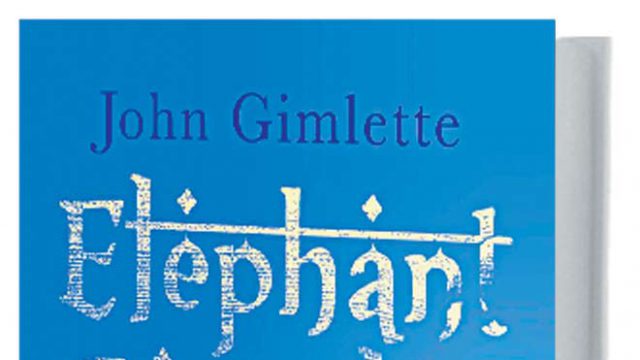Travel writing is a bit like Scrabble—a game enjoyed and engaged with, but rarely considered a potential Olympic Sport. Also like Scrabble, which relies on one word to build another, travel writing relies on one world (the writer’s) to build another (the book’s).
Seen in this light, John Gimlette’s Elephant Complex is more than just about Travels in Sri Lanka. It’s a political and ethnographic commentary with ‘Olympic’ ambitions, outreaching the breadth of its 500-odd pages. Not the book you’d carry, let’s say, to read under a beach umbrella, cold martini in hand. But the kind you’d return to every time the complexity of this small, bullet-holed nation baffles you again.
A British lawyer and travel writer who had never set foot on the island before he decided to write the book, Gimlette is clearly an outsider. The kind who sets out to be an insider before page one—wandering in his own neighbourhood of Tooting in South London, which now has more Sri Lankan Tamils than “there were ever Britons in Cey-lon”. Before he arrives, he also carefully constructs a network of people through whose eyes he wishes to see the country and its political and historical trajectories. Not for him the accidental felicity alone of meeting a thieving auto driver or a conman in a suit, but also the certainty of ‘encounters’ with a former President, a minister of Parliament with beacons in his cars, a well-known cricketer or two and a belligerent novelist, among other chosen conduits of culture.
The writing though doesn’t appear to suffer from such lawyerly predisposition, effortlessly winding its way through the inner and outer worlds of Colombo and Anuradhapura, Galle and Kandy, Trincomalee and Jaffna. A story of the land told through the stories of its people and former colonisers and raiders. From the eccentric Dutch ‘burghers’ of Kandy and the British lieutenant who was the “would-be Sultan” of the northern isle of Delft (taming wild horses and making sure that “even today, many Delftians… smile with Irish eyes”) to Chinese admirals who whisked away a Sinhalese king “as exotic booty” and the captured armies of President Kruger, there’s verifiable intrigue at every bend.
Yet largely, it’s today’s Sinhalese and Tamils in post-war Sri Lanka that people the pages of Gimlette’s book—one from which the shadow of the war never quite seems to lift. By the end of it in fact, the author appears entirely taken by the civil war and the civil war alone. Not as a voyeur as much as a man faced with the challenge of making sense of it all and putting it into words and sentences, punctuating it with empathy. The only time Gimlette seems to slip and teeters close to the ethical edge is when he pockets a “peppermint nugget” from the rubble of LTTE leader Prabhakaran’s home. He recovers soon enough, of course, and wonders why he feels no rage on his way back to the capital. “Sri Lanka has a strange way of subverting the conscience. I sometimes wondered if there wasn’t some vast emotional transponder buried deep in the island, scrambling all the signals. How else had the tourism survived, as the bloody battles raged?” But it did. And war tourism or not, it continues to thrive. Reason enough to read a book like this and other award-winning non-fiction titles on the country that have been steadily filling the shelves in recent years. To remind yourself that no matter how prepared you are, a trip to Sri Lanka will not be about “the search for comprehension, but a battle with perplexity.”




